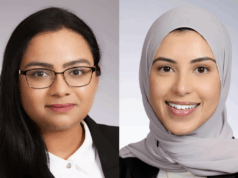Arthur Moss, professor of Medicine at the University of Rochester Medical Center, Rochester, USA, has won the Golden Lionel Award, which is awarded every two years at the Venice Arrhythmias international symposium in Venice, Italy. The conference organising committee grants the award to recognise “eminent authority in the field of arrhythmology.”
Moss attended Yale as an undergraduate then Harvard Medical School. He interned at Massachusetts General Hospital and finished his residency in Rochester, where he also did a fellowship in cardiology. Since his first publication in 1960, he has published over 500 scientific papers, books, chapters, and editorials. Many of the publications focused on cardiac arrhythmias, electrical malfunctions that can throw the heartbeat out of rhythm, and stop it in the worst cases.
As a result of work led by Moss over more than two decades, researchers have achieved an 80 percent reduction in life-threatening long QT syndrome events via drug treatment (e.g. beta-blockers) and device advances. In April of last year, Moss’ team won a four-year, US$2.3 million grant from the National Institutes of Health to continue its study of long QT syndrome into its 24th year.
In addition, Moss has spearheaded the research that led to the use of implantable cardioverter defibrillators (ICDs). Led by Moss, the 2002 MADIT II study (Multicenter Automatic Defibrillator Implantation Trial II) in particular changed medical guidelines nationwide and made a hundred thousand heart attack survivors eligible for ICD therapy.
In September, Moss and colleagues published a study in the New England Journal of Medicine that found patients who had a cardiac resynchronization device implanted along with a defibrillator had a 34% reduction in their risk of death or heart failure when compared to patients receiving only an ICD. The overall benefit observed from resynchronisation therapy was driven by a 41% reduction in heart failure (MADIT-CRT trial). Going into the study, previous work had shown that ICDs were so effective at preventing sudden death that patients lived longer and were subsequently at increased risk for heart failure. This created an urgent need to better address both risks in tandem, and the addition of a resynchronisation device fit the bill.
“I am greatly honoured to receive this award from colleagues who gather at this prestigious workshop every two years,” Moss said. “It has been tremendously exciting to see this line of work progress from its early stages to the point where new therapies are being realised.”












